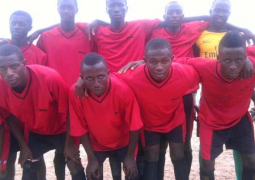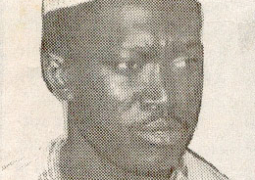The African Commission on Human and Peoples' Rights (ACHPR), the main regional body entrusted with the responsibility of promoting and protecting human and peoples' rights in Africa yesterday commenced its 46th Ordinary Session, at the Sheraton Hotel in Brufut.
The occasion was opened by Therese Sarr Toupan, the Acting Registrar of Companies at the Attorney-General's Chambers, on behalf of the Attorney-General and Minister of Justice.
The Commission often holds two Ordinary Sessions in a year: May and November. The Sessions are always occasions for state parties, Human Rights Institutions (NHRI) and Non-Governmental Organisations (NGO) to interact and look at the overall human rights situation on the continent.
The eleven-member regional body that was established some 22 years ago would be busied during the Session looking into human rights situation on the continent, during the past six months.
During the session the Commission will examine State Reports from the Democratic Republic of Congo, the Republic of Congo, Ethiopia, Cameroon and Botswana.
The Commission shall also adopt reports of promotional mission conducted in Burkina Faso, Republic of Congo, Namibia, Nigeria and Tanzania.
It shall also examine a number of reports and draft documents on key human rights issues, such as the report of the Working Group on Economic, Social and Cultural Rights, the conclusions of a sub-regional conference for East, Central and Southern Africa on the death penalty, the paper on sexual orientation, the proposed extension of Universal Jurisdiction of the African Court, and the impacts or effects of the extractive industry and human rights abuse in Africa.
"Some of these papers are long overdue," says Bahame Tom Mukirya Nyanduga, the Acting Chairperson of ACHPR.
Noting that the issues being addressed vary in scope and impact on enjoyment of rights, he said they remain important and relevant, whether they affect massive violations as in the case of international criminal justice and universal jurisdiction issues, or the rights of minorities.
Mr. Nyanduga, who used the occasion to bid farewell to the Commission, adding that the objective of the two-week session is to gauge human rights in state parties, and evaluate the various measures undertaken by governments, and the impact by various human rights actors, including increasingly non state actors, on the enjoyment of human and peoples' rights in Africa.
He added that the discussion provides a kind of score card, litmus test, or yardstick, with which to measure successes, and in some cases retrogression.
"If in the course of our deliberations, we are confronted with the realities of retrogression, we should not be ashamed to say so, but should take measures to address such retrogression," he told the delegates.
"The African Commission has over the years been doing a lot of good work on the continent. Unfortunately, one of its weaknesses is the lack of visibility of its work, and the inadequate implementation of its recommendations," he said, and then appealed to state parties to implement its recommendations.
According to him, there have been important developments in many parts of the world, noting that Africa, in particular has witnessed unprecedented expansion of the democratic space and major social economic changes and reforms.
"Major strides have been made in this regard, although there are still a few setbacks, which we must address together. We must continue to highlight the synergy between democracy, peace and security, development and human rights seriously, if we want to achieve prosperity and the fullest enjoyment of human and peoples' rights in the medium to long-term," he added.
He revealed that the situation concerning the enjoyment of freedom of expression in The Gambia is a matter of grave concern to the Commission, adding that Guinea and Niger have continued to grab international headlines for wrong reasons.
"The right to freedom of expression, association, and peaceful assembly are important aspects of any democratic dispensation. Without these fundamental freedoms, democracy is deprived of its meaning," he concluded.
The two newly elected Commissioners: Mr. Khalfallah Bechir and Mrs. Zainabo Sylvie Kayitesi were sworn in.
Read Other Articles In Article (Archive)




